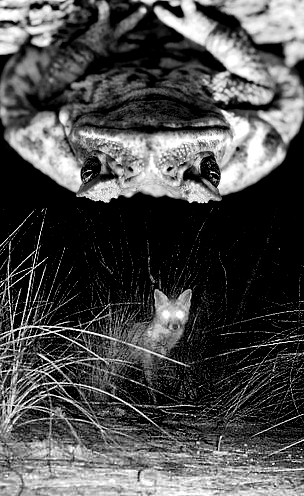Uninvited guests checked for new ways to shut the gate
 Local researchers are working with colleagues worldwide on a major project to improve understanding and capability to control invasive animals.
Local researchers are working with colleagues worldwide on a major project to improve understanding and capability to control invasive animals.
An international team of researchers will work at the University of New England on a number of ongoing natural resource management and invasive species control projects in Australia.
UNE’s Professor Paul Martin says the researchers hope to develop a toolkit of training and support materials for researchers and animal control officers to improve engagement with landholders and regional communities.
“The project aims to bring a deeper human sciences perspective into invasive animals management, promoting greater communication and community involvement in pest animal control and natural resource management,” Dr Martin said.
“The majority of productive land in Australia is managed by small landholders, farmers and graziers, meaning that in order to get a better implementation of control programs, it is important to promote a community of effort.
“We’ve brought some of Penn State’s leading rural engagement specialists, together with researchers from Cornell and Sam Houston universities to inspect a number of invasive animals control programs throughout eastern Australia. This will give them the opportunity to work directly with the people on the ground, who are leading and participating in these programs in our communities.
“The end result will be a toolkit and resources to promote better management and planning to include community input and support as a critical aspect of invasive animal control. The longer term aim is to establish a strong cohort of leaders in the human dimensions of natural resource governance.
“The visit is the latest collaboration to have grown from UNE’s ongoing partnership with Penn State University, focussing research efforts on issues of regional and global significance for the benefit of rural communities in both countries.”
The ongoing project is funded by the Invasive Animals CRC and involves a large number of Australian collaborators including the Queensland Murray-Darling Committee, NSW Department of Primary Industries, Qld Department of Agriculture, Fisheries and Forestry, and the Tasmanian Department of Primary Industries, Parks, Water and Environment along with other international partners.








 Print
Print